The Mobile CPU Core-Count Debate: Analyzing The Real World
by Andrei Frumusanu on September 1, 2015 8:00 AM EST- Posted in
- Smartphones
- CPUs
- Mobile
- SoCs
Real Racing 3 Playing
The little cores see at least 3 major threads loaded onto them. The 4th core is doing some work as well, but quite a bit less than the first 3. What is extremely interesting here is the frequency distribution graph: The cores don't settle for any one frequency and make use full use of the full range of the cluster.
The behaviour of the big-cluster is clear-cut. There's only 1 significant thread that ever gets placed on the big cores. This is an ideal scenario for a big.LITTLE architecture as would there have been more than 1 thread, that secondary thread would have suffered from diminished efficiency as it wouldn't be able to run at the best perf/W frequency due to ARM's synchronous frequency planes between CPUs in a cluster.
The power-distribution graph does show the worrying anomaly of seeing CPU4 come out its power-collapse state for very small periods of time. This would be a source of inefficiency of either the scheduler or the CPUIdle framework needing to wake up that core for the sake of simple clean-up work instead of real load.
I think it's pretty safe to come to the conclusion that Real Racing 3 is coded with quad-core CPUs in mind as we see exactly 4 major threads loading the SoC's CPUs to various extent.


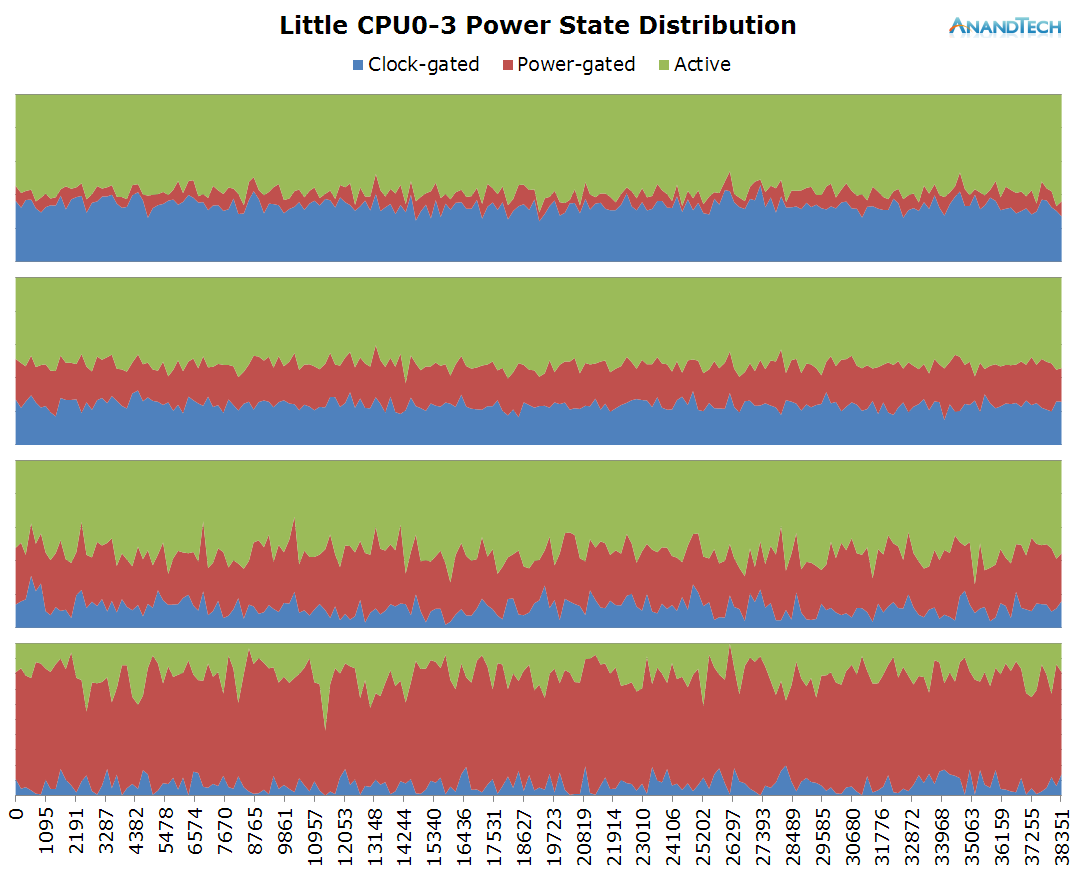

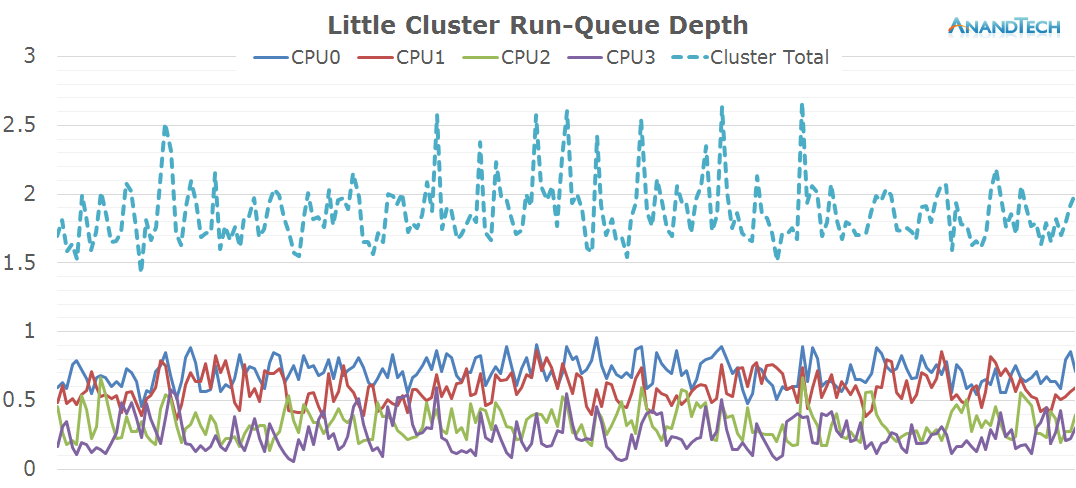
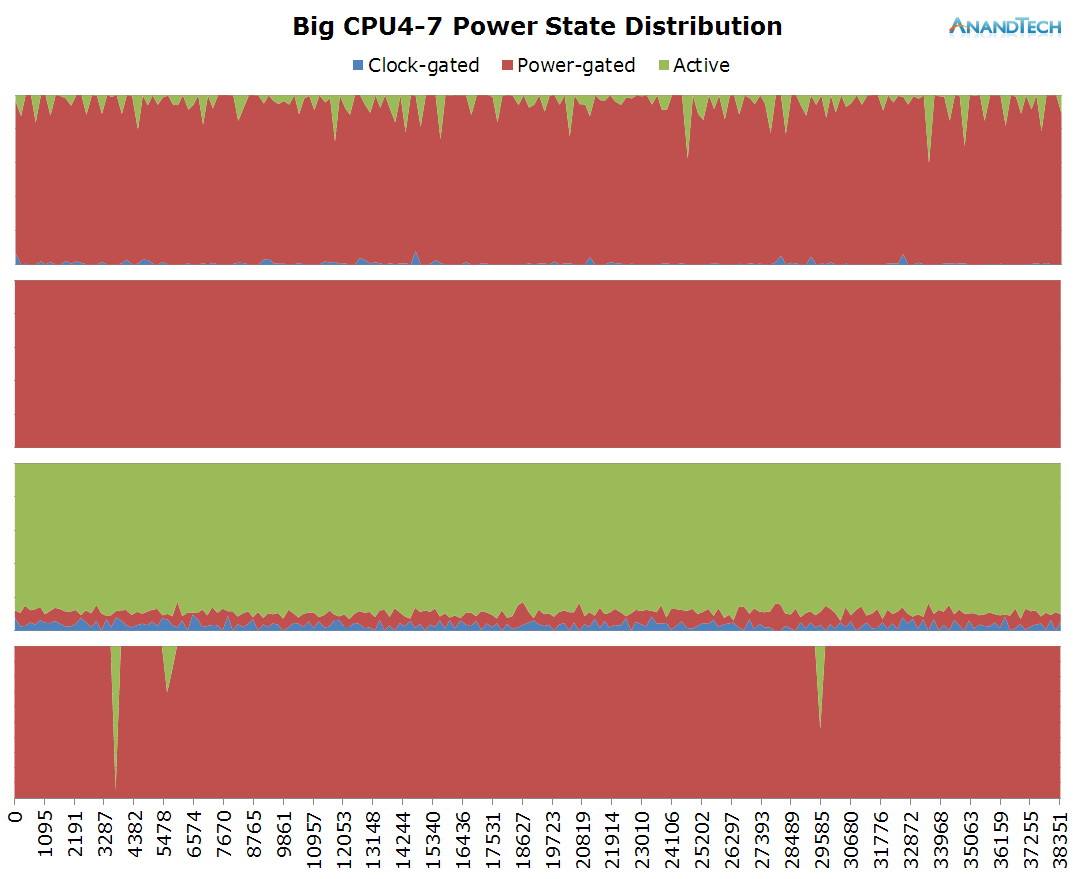
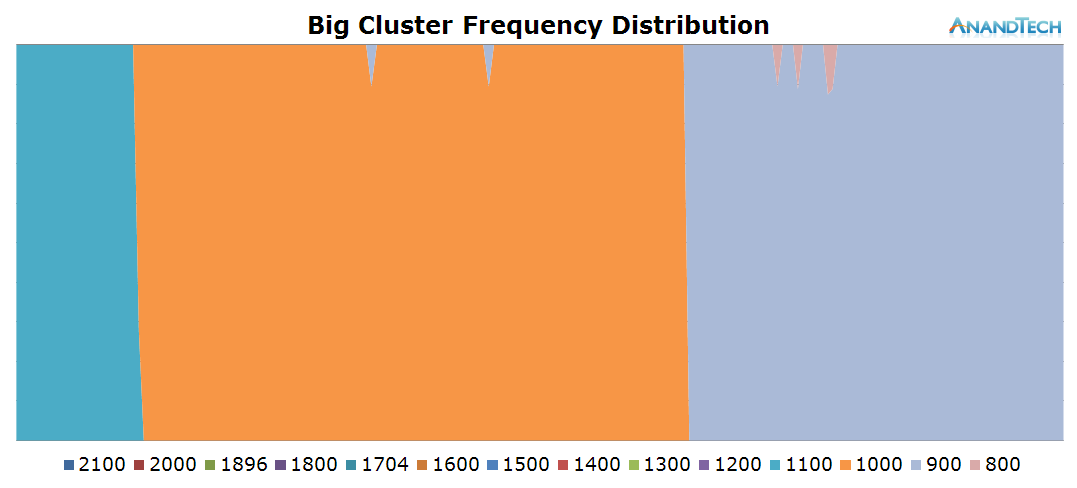
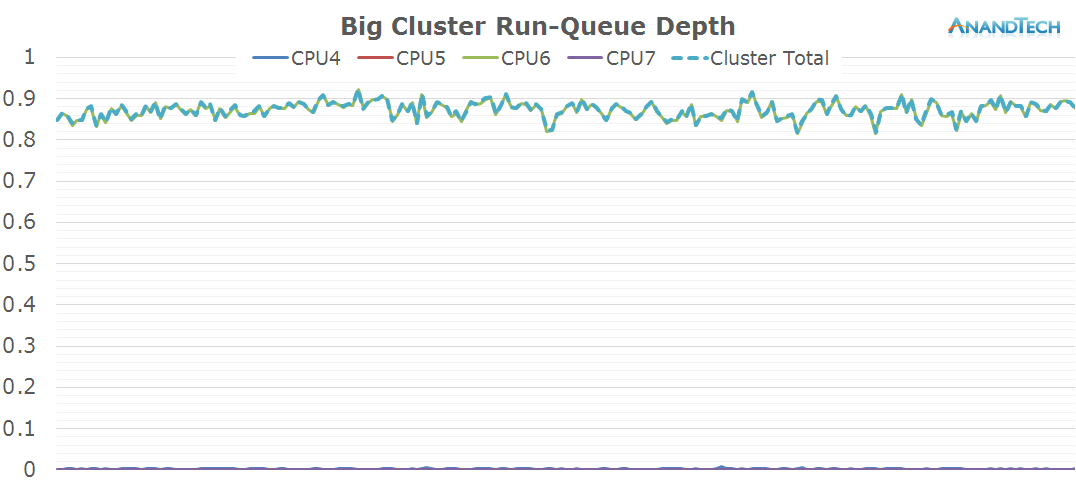
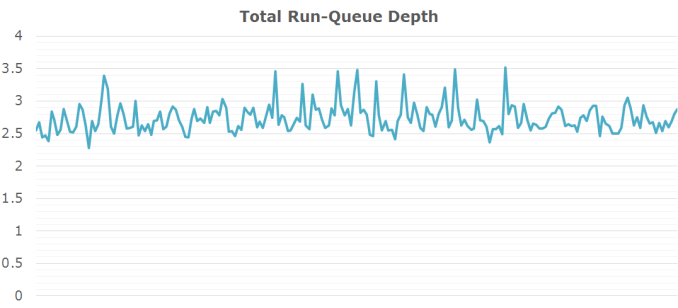








157 Comments
View All Comments
toyotabedzrock - Wednesday, September 2, 2015 - link
This article author is partly color blind, reading the hangout app launch section makes it obvious he can't see the color difference of 1800 and 2100.LiverpoolFC5903 - Wednesday, September 2, 2015 - link
Great piece from AT as usual. Very interesting to say the least.I remember reading another good piece about multiple core usage in Android in one of the android themed websites (Androidcentral?). It was a much simpler analysis and the premise was to debunk the myth that more cores are pointless at best and counter productive at worst.
The conclusion from the tests were unequivocal. Android DOES make use of multiple cores, both via multi threaded programs and discrete system tasks. So core count DOES matter, at least to an extent.
name99 - Wednesday, September 2, 2015 - link
No-one is denying that "Android can make use of multiple cores".What they are denying (for this article and similar) is that the core are
- a useful way to save power OR
- a way to make the phone feel/behave faster
This article, you will notice, does not answer either of those issues. It doesn't touch power, and there've been plenty of comments about above (by myself and others) why what is being shown here has no relevance to the issue of performance.
Do you really want to insist on claiming that articles prove what they manifestly do not, and insist on ignore the (well-explained) concerns of engineering-minded people about the sorts of tests that ARE necessary to answer these questions? Wouldn't you rather be on the side of the engineers trying to understand these issues properly, than on the side of the fanboys, uninterested in the truth as long as you can shout your tribal slogans?
darkich - Friday, September 4, 2015 - link
You make no sense.Ever heard of the benchmarks?
If all cores are used (which this article proves as a fact), and if the benchmark shows the chip scoring higher than the chip with less cores - then yes, more cores means better performance.
It is a matter of that simple logic.
And the whole massive myth that this analysis dispelled was exactly the following - more cores is an useless gimmick BECAUSE ANDROID APPS CANNOT make use of them
Hannibal80 - Wednesday, September 2, 2015 - link
Wonderful articleBillBear - Wednesday, September 2, 2015 - link
Absolutely fascinating stuff. I was seriously not expecting to see Mediatek's ultra high core count strategy vindicated by real world measurements. That's the great thing about taking measurements instead of just speculating.As a follow up, it would be fascinating to see how selectively disabling different number of cores effects timed tests.
For instance, select an extremely CPU heavy web site like Forbes and see if allowing half as many cores makes rendering the home page take twice as long.
serendip - Wednesday, September 2, 2015 - link
Excellent article as usual by Andrei. As an owner of a phone with the MT6592 Mediatek 8-core A7 chip, I was also skeptical about the point of having so many small cores. I only got the phone because it was cheap :) I've seen all 8 cores spike to max frequency when loading complex web pages or playing games. For common tasks, only 2 or 4 cores are used. I've also found that down clocking it doesn't slow things down much and yields longer battery life; modifying the single core upfreq and additional core activation thresholds could be key to optimizing these chips to one's usual workload.Notmyusualid - Friday, August 26, 2016 - link
Good comment - I've been pondering this all morning, hence why I'm back on this article. Looking at an A9 Pro right here, 4.4 configuration.It seems that the low cores have a min freq of 400MHz, which I find interesting, as they seem to sit a 691MHz most of the time. Two of the big four sit in sleep, with the other two at 833MHz.
I wonder how adjustment to the larger cores may improve battery life.
krumme - Thursday, September 3, 2015 - link
Absolutely brilliant article that moved my pre undertanding.zodiacfml - Thursday, September 3, 2015 - link
Anandtech does it again. You are my entertainment and knowledge at the same time.My thoughts: Quite not surprising after seeing some benchmarks of some SoCs in one or two years since. I think the question here is performance versus more cores. More but smaller cores are best for efficiency and probably better marketing. The only problem with these smaller cores is performance which is why we often see them on cheaper devices and doesn't feel as fast. We still need more frequency for some big things and I believe a fast dual core will answer that. So, I can't wait to see the X20.